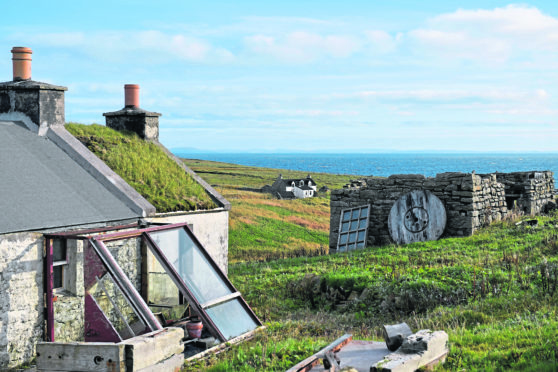One of Britain’s remotest communities have finally celebrated Christmas – with children having had to wait an extra day longer than usual to open their presents.
And islanders they will also see in the New Year nearly two weeks after the rest of the country – because Foula still adheres to an ancient calendar for the festivity.
Foula in Shetland, Britain’s remotest permanently inhabited island, marks Christmas and New Year according to the feast days of the old Julian calendar – Yule usually on January 6 and New Years Day on the 13th.
But because Christmas this time fell on a Sunday, it was celebrated yesterday.
The community of just over 30 on the tiny Shetland island has a strong Norse tradition of folklore, music and special festivities. Its inhabitants were the last to speak Norn, a form of old Norse which died out around 1800.
Islanders will gather in one house to celebrate Christmas today where they will exchange gifts and greetings.
The islanders include ten children – who have been patiently waiting for Santa Claus.
“With January 6 on a Sunday this year the children have had to wait until today to open their presents” said islander Lynn Robertson.
“They have been very patient, but they are naturally very excited about opening their gifts.
“They have got used to it over the years and look forward to opening their presents well after everybody else. But this year they’ve had to wait an extra day.”
Another islander said:”It is not just part of our tradition – but the world’s. It is everybody else who changed – not us.
“We are not unique – other parts of the world, such as areas of Russia, still celebrate the old calendar.”
The island is three and a half miles long by two and a half miles wide.
The Gregorian calendar is internationally the most widely used civil calendar. It is named after Pope Gregory XIII, who introduced it in October 1582.
The rest of Great Britain adopted the Gregorian calendar in 1752, but Foula stuck with the old Julian calendar.
The change was made because the Gregorian had a 0.002 per cent correction on the length of the year. The change switched Foula’s calendar 13 days behind the rest of Britain, though this moved up to 12 when the island didn’t have a leap year in 1900.
For that reason December 25 becomes January 6 in the Foula calendar.
